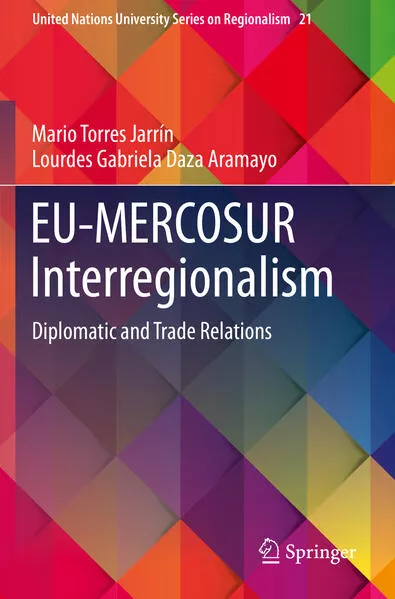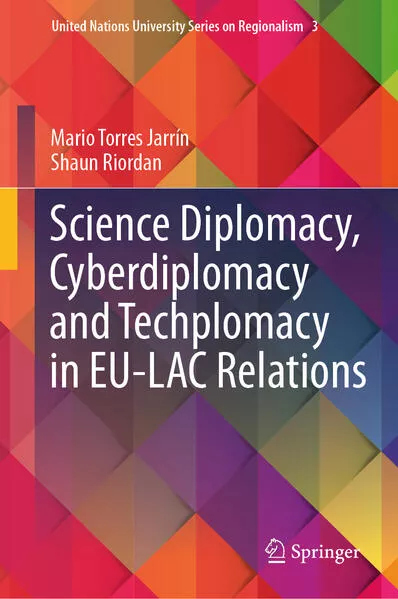
- Publikationen ca: 5
- Fragen & Antworten
Mario Torres Jarrín
Lourdes Gabriela Daza Aramayo, PhD, is one of the three founders of the Anglo-American University, Prague, and from 2020 the Founder and Director of the LAC-Center (Latin American and the Caribbean Business and Studies Center) at this University.
She holds an Ing. in political economics with specialization in analysis of socio-economic data, and a PhD in economic policy from the Prague University of Economics and Business. She specializes in relations between Latin America and the European Union. She was Executive Director of the Center for Latin American Studies at the Prague University of Economics and Business from 2008 until 2018. She was also a lecturer at the Department of Economics and International Relations at this university. She is a member of the Bi-Regional Academic Council, Permanent Academic Forum, Latin America and Caribbean–European Union.
EU-MERCOSUR Interregionalism
This book focuses on EU-MERCOSUR relations from a diplomatic and trade perspective against the background of the political agreement between the two in 2019. The authors take into consideration that EU-MERCOSUR cooperation developed during recent decades has tried, on the one hand, to build a strategic partnership to respond to the main challenges of international agendas and, on the other, to incorporate in Latin American countries the European new vision of transatlantic regionalism.
Science Diplomacy, Cyberdiplomacy and Techplomacy in EU-LAC Relations
This book explores collaborations between the European Union (EU) and the CELAC ( Community of Latin American and Caribbean States) in science diplomacy, as well as the related areas of cyberdiplomacy and techplomacy. It focuses on how interregional collaboration could strengthen societal resilience in both LAC and EU member countries and contribute to realising the SDGs and Agenda 2030 objectives.
Science Diplomacy, Cyberdiplomacy and Techplomacy in EU-LAC Relations
This book explores collaborations between the European Union (EU) and the CELAC ( Community of Latin American and Caribbean States) in science diplomacy, as well as the related areas of cyberdiplomacy and techplomacy. It focuses on how interregional collaboration could strengthen societal resilience in both LAC and EU member countries and contribute to realising the SDGs and Agenda 2030 objectives.
EU-MERCOSUR Interregionalism
This book focuses on EU-MERCOSUR relations from a diplomatic and trade perspective against the background of the political agreement between the two in 2019. The authors take into consideration that EU-MERCOSUR cooperation developed during recent decades has tried, on the one hand, to build a strategic partnership to respond to the main challenges of international agendas and, on the other, to incorporate in Latin American countries the European new vision of transatlantic regionalism.
EU-MERCOSUR Interregionalism
This book focuses on EU-MERCOSUR relations from a diplomatic and trade perspective against the background of the political agreement between the two in 2019. The authors take into consideration that EU-MERCOSUR cooperation developed during recent decades has tried, on the one hand, to build a strategic partnership to respond to the main challenges of international agendas and, on the other, to incorporate in Latin American countries the European new vision of transatlantic regionalism.




